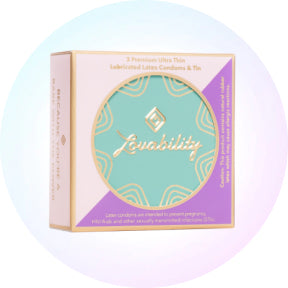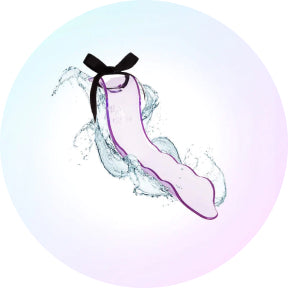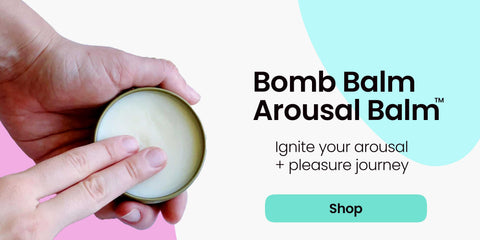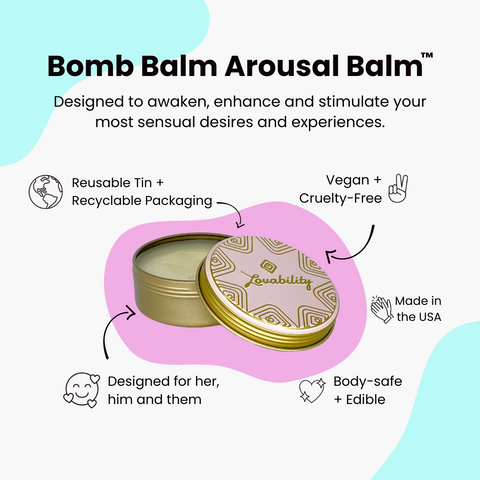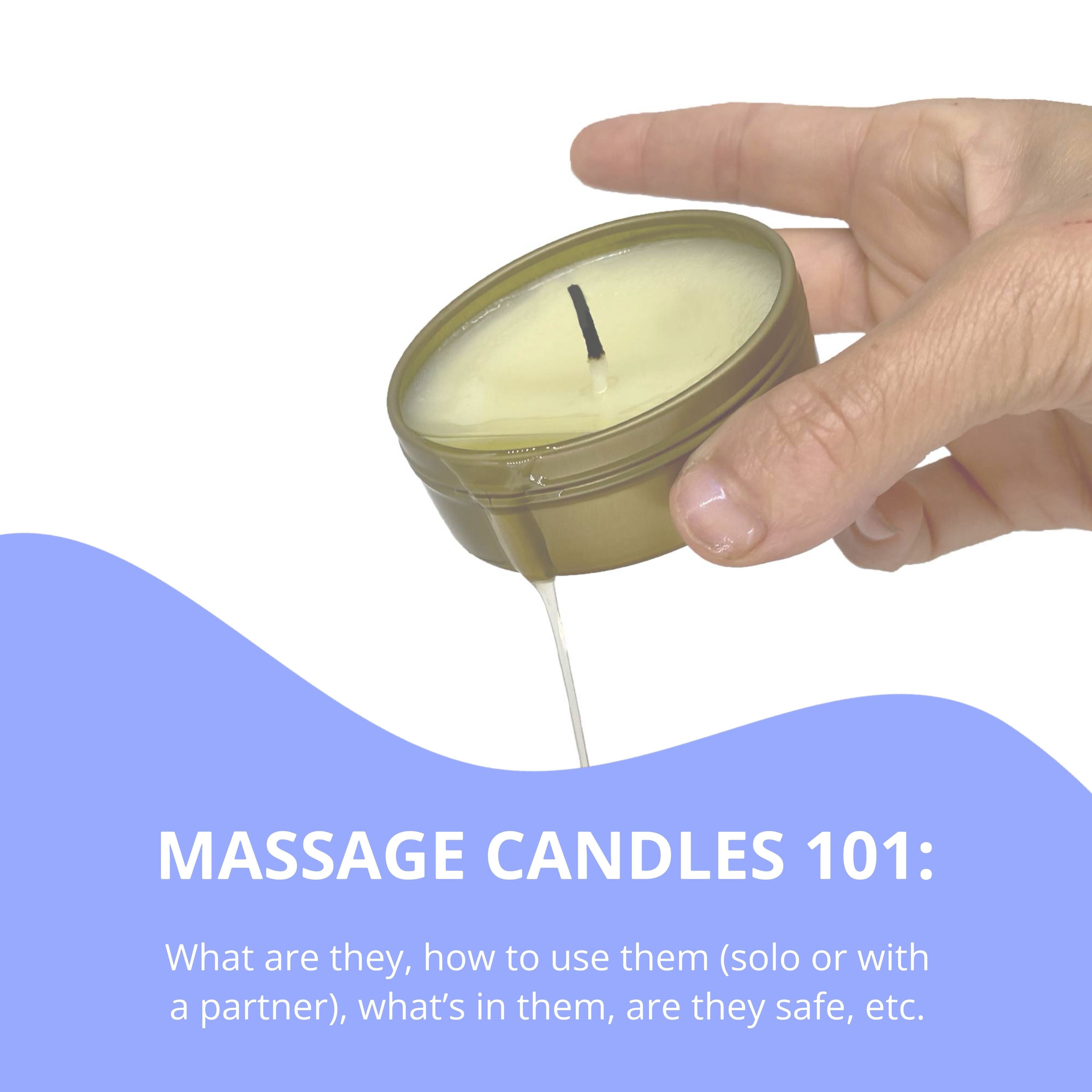
Massage Candles 101
Whether indulging in solo self-care or building intimacy with a partner, massage candles are the perfect addition to your everyday, body-safe pleasure routine...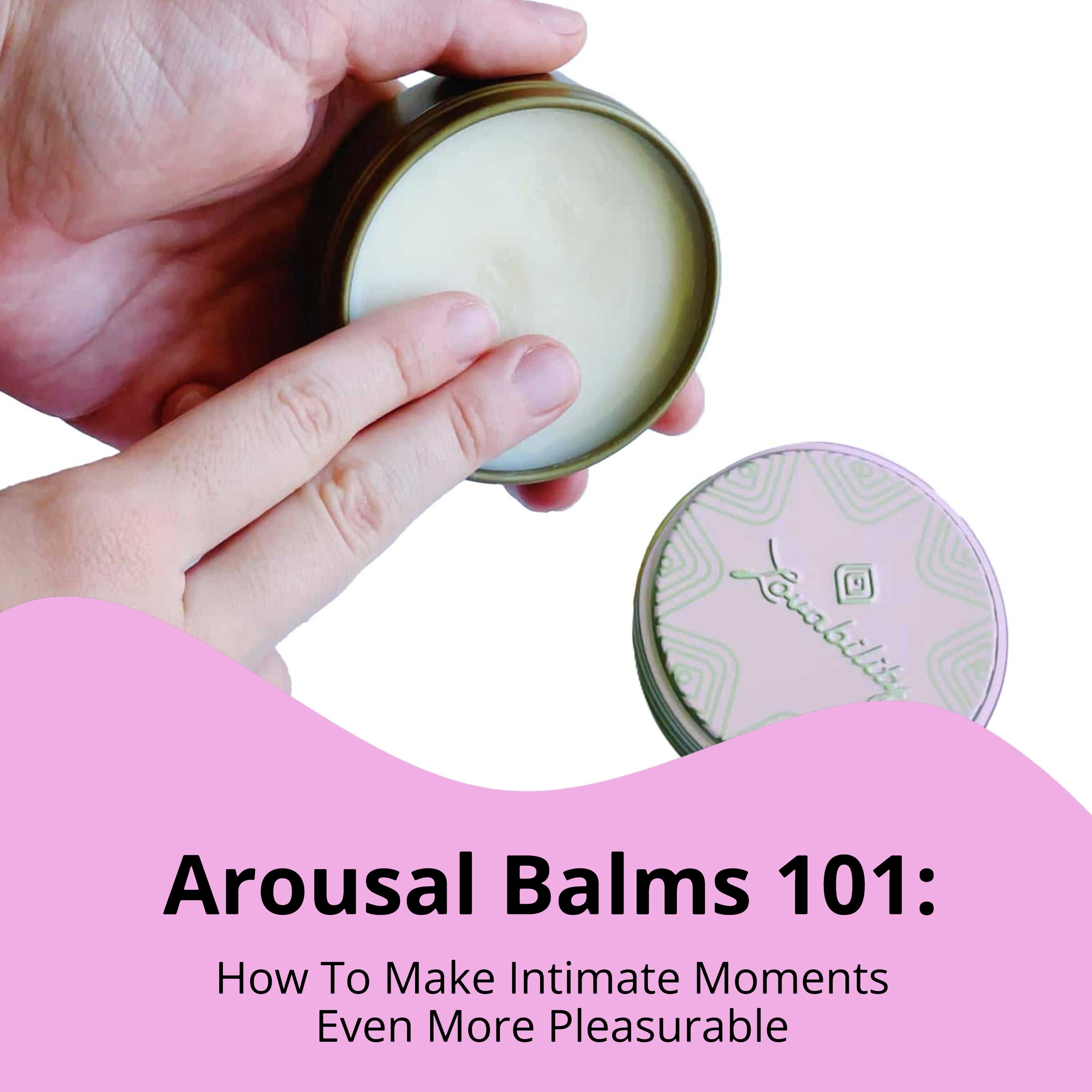
Arousal Balms 101
How Do Arousal Balms Work?
Arousal balms typically contain ingredients like menthol or peppermint that stimulate nerve endings and increase blood flow to the clitoral area. When applied topically, the balm creates a tingling or warming sensation, heightening sensitivity and arousal. This enhanced sensation can lead to increased pleasure and satisfaction during intimate moments.
Beyond just feeling good, arousal balms can help increase blood flow and sensation to the clitoral area, potentially addressing issues related to arousal and sexual pleasure, such as low libido or difficulty reaching orgasm.
Where Do You Put Arousal Balm?
You might be wondering – where exactly do you apply arousal balm? Do we only put arousal balms on the erogenous zones?
Here's a quick list to help you make the most of this feel-good product:
-
Clitoral Area: Arousal balms are typically applied to the clitoral area to enhance sensation and increase blood flow, leading to heightened arousal and pleasure. Simply apply a small amount of balm to the clitoral hood and gently massage it in for maximum effect.
-
Labia: You can also apply arousal balm to the labia for added sensation and pleasure. Apply a small amount of balm to the outer lips of the vulva and massage it in gently to enhance sensation and arousal in this area.
-
Frenulum Of The Penis: The benefit of arousal balms isn't reserved for people with vulvas. Arousal balm can also be applied to the frenulum of a penis, the triangular, V-shaped area behind the tip that is often considered the most sensitive part of the penis (and the area with the highest pleasure potential).
-
Nipples: For those who enjoy nipple stimulation, arousal balms can also be applied to the nipples to enhance sensation and increase arousal.
-
Inner Thighs: For a tantalizing sensation, some people also like to apply arousal balms and serums to the inner thighs for a subtle yet arousing sensation.
-
Lips: Want to feel sexy anytime? Apply a small amount of balm to your lips throughout the day to enjoy an invigorating rush of pleasure and remind yourself just how sexy you are.
When Should Arousal Balm Be Applied?
You can apply arousal balm either before or during sex, depending on personal preference and desired effect. Some women prefer to apply arousal balm before sex as part of their pre-play routine to enhance arousal and sensitivity leading up to intimacy. Others may choose to apply it during sex to intensify pleasure and sensations in the moment.
Ultimately, it's up to you to determine when and how you want to use it.
How Long Does Arousal Balm Last?
The duration of the effects of arousal balm can vary depending on factors such as the specific product used, individual sensitivity, and application technique. In general, the effects of arousal balm typically last anywhere from 20 minutes to an hour, though some may provide longer-lasting sensations.
Make sure to follow the instructions provided by the manufacturer and adjust usage based on personal preferences and sensitivity levels.
How Fast Do Arousal Balms Work?
It may take a few minutes for the effects of the arousal balm to be felt, with the tingling sensation typically occurring within 5 to 10 minutes after application. Individual sensitivity and the specific formulation of the arousal balm can also influence how quickly the tingling sensation is experienced.
Are Arousal Balms Safe?
Arousal balms are generally considered safe for most people when used as directed. However, it's essential to read the product label and follow the instructions carefully. Some individuals may be sensitive to certain ingredients in arousal balms, so it's a good idea to perform a patch test on a small area of skin before applying it to more sensitive areas.
If you have any concerns about using arousal balms, such as allergies or skin conditions, it's best to consult with a healthcare professional before use. As with any product, it's essential to use arousal balms responsibly and discontinue use if you experience any adverse reactions.
Can You Use Arousal Balm With Condoms?
Yes, generally, arousal balms can be used with condoms. Similar to lubricants, it's essential to check the specific product instructions and ingredients to ensure compatibility with condoms.
Some arousal balms with oil ingredients can potentially degrade latex condoms, so it's crucial to wash off such a balm with warm water and a mild soap before condom use or simply use a water-based arousal balm. Applying the arousal balm to areas away from the condom, such as the clitoral area, nipples, or inner thighs, can also help avoid direct contact and reduce the risk of affecting condom integrity.
___________________________________
Remember, everyone's body is different, so feel free to experiment and find what works best for you. Whether you're applying arousal balm to the clitoral area, labia, nipples, inner thighs, or all of the above, the most important thing is to listen to your body and enjoy the sensations it brings. Here's to embracing pleasure and satisfaction in all your intimate moments!

Why A Water Orgasm Is The Best Orgasm
Rather than racing to the finish line, water masturbation - a form of slow pleasure - encourages women to explore their sexuality at their own pace. For many, the resulting water orgasm is the best orgasm.
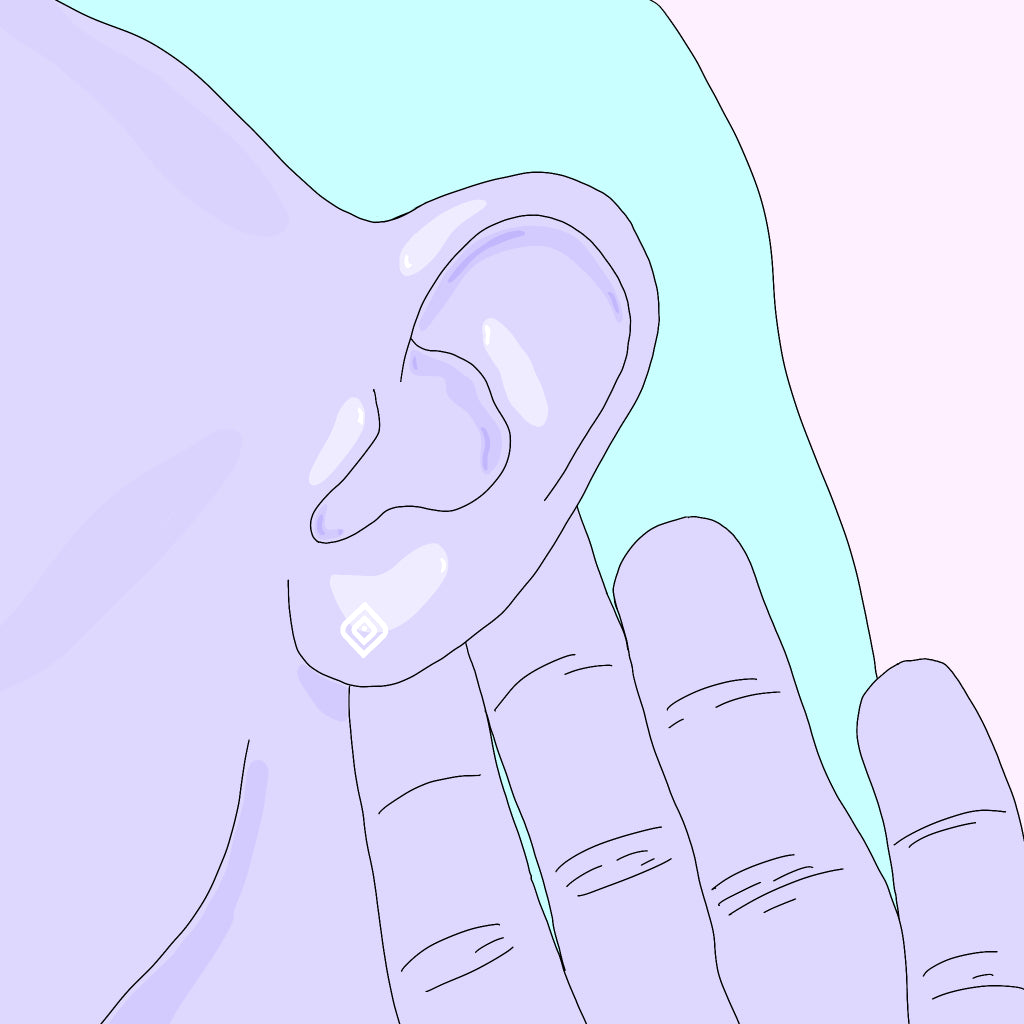
Our Senses & Arousal: The Power of Hearing
Check out our 5 tips to boost arousal and heighten intimacy through the power of sound.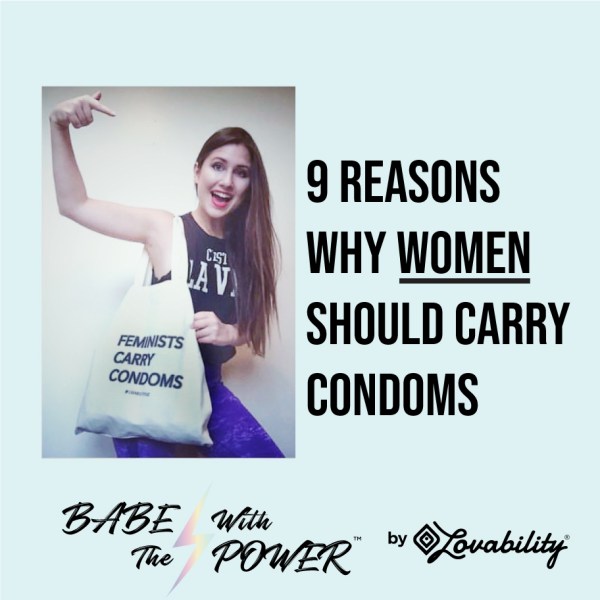
Why WOMEN Should Carry Condoms
Ladies, it is time to lean into your sex life and take the protection power into your own hands. Not convinced? Here are 9 reasons why women should carry condoms.
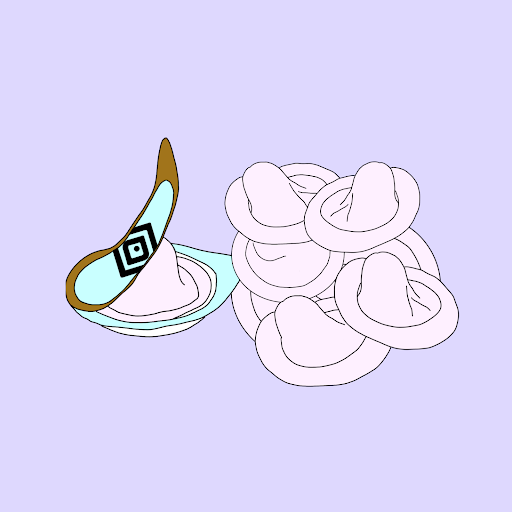
5 Creative Ways To Use A Condom
Let's explore 5 creative uses for condoms beyond their traditional role in protection against sexually transmitted infections (STIs) and pregnancy.
The Strange & Wonderful History of Condoms
The history of condoms is long and storied, with pretty much everything you can imagine used to prevent pregnancy and disease. The twist is that condoms have always been as much of an issue for women as men. Yes, ladies - you're meant to carry condoms!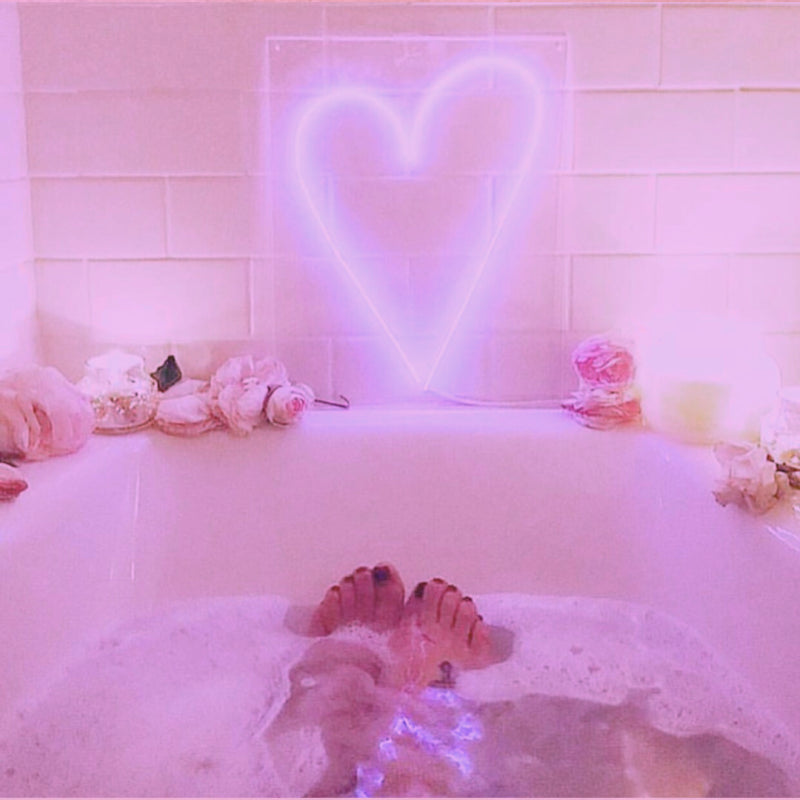
“Bathtub Love” – The Perfect Sexy Romantic Bath For Valentine’s Day
Looking for ideas to celebrate Valentine's Day or any day? Set your intentions and build the perfect sexy romantic bath for you and your partner/s.
Single And Ready To Embrace It!
You do not need to be in a romantic relationship to feel fulfilled. Why? Because you always have yourself, and that’s the most important and essential relationship anyone can have. With Valentine’s Day in full force, lose the anxiety, embrace your self-love, and learn to date yourself.
Masturdating: What Is It and Why Is It Important?
Master dating - aka masturdating - is the social mediaa trend defined as the practice of spending quality time alone engaging in self-care, enjoying one's company. It's a clever blend of masturbation and dating to remind you to love and take care of yourself.
The Case For Bathtub Masturbation (AKA Bathturbation)
Most women have explored and enjoyed pleasure with water pressure, whether from a faucet, shower head or jacuzzi jet. If you have not, let us introduce you to your new favorite sexual practice: bathturbation -- the art of bathtub masturbation.

A Romantic Bath Date Night In A Box
Looking for a unique, romantic gift that both of you will love for Valentine's day?
As the inventor of The WaterSlyde, I wanted to emulate one of my most sensual bath experiences for you all. So I curated an all-in-one "date night in a box" - our Bringing Sexy Bath Kit - to help facilitate bliss and intimacy. Come along with me on a bath adventure and explore our romantic bath kit for couples.
What Do You Put In A Bath Date Night Box?
Imagine opening the kit with your partner to reveal an enticing assortment: a Bomb Bomb Arousal Balm, a ThreePlay Massage Candle, a Water Slyde aquatic stimulator, and a luxurious Hair Towel (to keep your hair dry while your getting wet), promising an unforgettable, sensual bath experience - a date night that proves staying in can be far better than going out.
Why Is The Bath A Great Place For A Date?
As you may know, I believe the bathtub is one of the best places to ignite your intimacy.
A sensual bath can be great for couples as it offers an intimate and relaxing environment that encourages closeness and connection. The warm water, soothing scents, and intimate ambiance can promote relaxation, open communication, and a deeper emotional connection between partners, making it a fulfilling and enjoyable experience for couples and oneself.
4 Easy Steps For A Romantic Bath Date
Now let’s sink into the Bringing Sexy Bath journey.
First, remember to set your intentions. Beginning with a pearl-sized amount of the arousal bomb, massage it into your pleasure pearl, the tingling, cool sensation ignites a rush of blood to desired areas.
Second, light the candle and set the mood. As it flickers, emitting a captivating aroma of our sexy Smolder aphrodisiac scent, let the ambiance transform you.
Third, your partner joins behind you in the tub, The WaterSlyde intensifying the experience, offering a direct rush of water to just the right places.
Fourth, with your hands free, the intimate setting invites exploration as the stream of water gives you endless waves of pleasure. You seductively blow the candle out and pour warm-to-the-touch oil over each other, enhancing the sensual connection. The WaterSlyde becomes a partner in this journey, facilitating caresses and closeness.
You are completely connected, aroused, and ready for more...
Enjoy your intimate experience my loves, and let us know how you enjoyed it.
With love and gratitude,
Maureen


